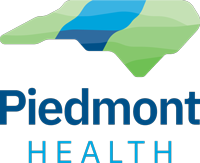When Piedmont Health SeniorCare was launched on Dec. 1, 2008, it was a new concept that was not very well known even among health-care providers. Allowing the elderly to receive a variety of health and social services at home and in SeniorCare’s Burlington facility was considered experimental.
When SeniorCare staff, participants and guests gather at the facility on Dec. 5, 2018, for the program’s 10thanniversary, there will be food, music and dancing. The verdict is in; the pilot has exceeded expectations, said Marianne Ratcliffe, M.H.A., the program’s Executive Director.
“It has been very successful and I think we owe much gratitude to the state – the North Carolina General Assembly, for their support, to the Department of Health and Human Services, for administering it and continuing to support its growth, and also to the community for recognizing it as a needed service to compliment other options for seniors wishing to age in place.”
When SeniorCare was launched, it was one of two such programs in the state. Today, there are 11 programs in 12 sites around the state.
Known as a Program of All-Inclusive Care for the Elderly (PACE), SeniorCare is a federally authorized program under which those 55 and older receive comprehensive and coordinated care in their homes and at the Burlington facility. The goal is to allow the elderly to remain in their communities as they age rather than moving to a nursing home or other institutionalized setting.
SeniorCare services include primary and specialty medical care, nursing care, prescription medications including home delivery, nutritional counseling, dental care, optometry, home health and personal care and caregiver respite.
When SeniorCare began in 2008, the program had four participants and one site, in Burlington; today, it has two sites – a second site was opening in Pittsboro in 2014 —Together, the sites are served by 145 staff. Over the years, SeniorCare has served 632 participants.
Despite growth of the Piedmont program as well as other PACE programs nationally, the critical aspects of the model has not changed, Ratcliffe said. “It’s still the same model of care but we’ve enhanced it based on what we’ve learned through listening to the needs of our seniors,” she explained.
SeniorCare shares a building with Piedmont Health’s Burlington Community Health Center. The space occupied by SeniorCare has tripled, growing to 15,000 square feet. But they are not simply using more space; they are also using it more wisely, she said.
For example, rather than one big room for activities for participants, as it once had, SeniorCare now has some smaller spaces for specialized activities, such as for dementia patients. They have modified the building’s plan “four or five times,” Ratcliffe said.
“We’ve continued to enhance the program and we’re still learning,” she said.
And they’re still growing. To serve a growing need, Piedmont Health is planning two “alternative care” sites that would offer PACE services on a more limited basis than those available at the SeniorCare facilities in Burlington and Pittsboro.
SeniorCare-Burlington is at capacity and they are planning either a major renovation or a move to a new facility.
If there has been anything about SeniorCare services that has been disappointing, it is that it cannot seem to grow fast enough.
“Unfortunately, the need for high quality senior services in this state is growing and generally outpaces the supply of services,” Ratcliffe said. But with programs such as PACE, we will continue to evolve and honor the wishes of our seniors, caring for those who once cared for us.
